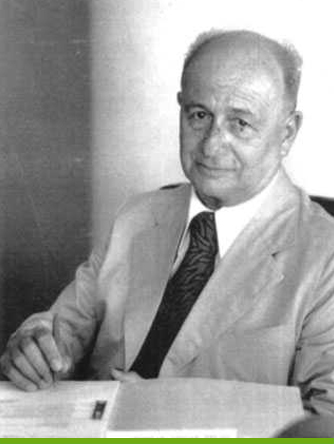Gjergj Fishta was born on the 23 rd October 1871; he died on the 30 th December 1940. He was a Franciscan, a poet and a translator from ...
Gjergj Fishta was
born on the 23rd October 1871; he died on the 30th
December 1940. He was a Franciscan, a poet and a translator from Albania. He
was also a rilindas. He was the chairman of the Congress of Monastir that
sanctioned the alphabets of Albania. In the year 1921, he was made the
president of the parliament of the country, Albania. He finished and printed
his epic masterpiece Lahuta e Malcís,
which was an epic poem that was written by Gheg dialect of the country,
Albania. The boot contains about 17,000 lines and is said to be the Iliad of
the country. Fishta was the first candidate in the country for the Nobel Prize
in Literature in the country.
source of picture: prishtinapress.info
Biography
He was born in
Fishte, dajc, Lazhe, Albania. Fishta studied philosophy and catholic theology
in Bosnia. He became the head of Franciscan gymnasium in Shkoder in the year
1902. He wrote his masin work, Lahuta
e Malcís, under the influence of the Croatian Franciscan Monks as a
scholar in the monasteries in Austria-Hungary, and it was influenced by the
national epics of the Croatian literature and the Montenegrin literature
According to Robert Elsie. Further, Elsie hypothesized that the in the main
work of Fishta, he replaced the fight against the Turks with the fight against
the Slavs, and that propagated Anti-Slavic feelings. The woprk was proscribed
to be an anti-Slavic propaganda by the authorities of Yugoslavian and Albanian
histography after the World War II. Fishta was referred to as ‘former agent of
the Austro-Hungarian imperialism’ by the Soviet histography, and that took
position against the Slavic people as well as Pan Slavism due to the opposed
rapacious plans of the Austro-Hungarian imperialism in the country, Albania,
and possessed a function in the catholic Clergy’s preparation for the Italian
aggression against the people of Albania.
The allegations were
not true, since the other factors were in the background of the accusations
leveled against him. Fishta was greatly influenced by the Slav Croats, are from
the Croats of Bosnia and Herzegovina. Lovro Mihacevic, a Bosnian Croat, an
Abanologist, a friar and a writer, implanted the love of literature in the
mother tongue of Fishta. While he was living in in Bosnia, Fishta met wiith two
writers, Croats, and he became friends with them:Grga Martic and Silvije
Strahimir Kranjčević. They both awakened literacy instinct in Fishta. Later on,
Fishta was prejudiced by the workings of Croatian writers Andrija Kačić Miošić
and Ivan Mažuranić
In the year 1908, he
took part in the election and won as the president of the the Congress of
Monastir. He was the interpreter of Albania in the conference that was held in
Paris in the year 1919. From the starting part of the year 1919 to the year
1920, he worked as the secretary of the Albanian delegation to the Paris Peace
Conference. At the end of the year 1920, he was also elected to be part of the
parliament in Shkoder and in the year 1921, he was made the vice president of
the Albanian parliament.
In the year 1924, he
supported fan Noli in the attempt to form a democratic system in the country.
After the establishment of Zogu Era, he left the country and relocated to Itay
willingly in the year 1925, and this happened before he resumed his seat as a
teacher and a writer in Shkoder, and it was there that he died in the year
1940.
Through the works he
did as a teacher and his literary works, he had a great influence on the
development of the written form of his native Ghen Albanian. Fishta served as a
translator of the following; Molière, Manzoni, Homer, etc. He was the editor of
Hylli i Dritës, a magazine in
the year 1913 and Posta e Shypnisë, a
newspaper from the year 1916 to the year 1917.
Works
- Lahuta e Malcís, epic
poem, (Zara, 1902)
- Anzat e Parnasit, satire,
(Sarajevo, 1907)
- Pika voese më vonë ri botuar si Vallja e
Parrizit, (Zara, 1909)
- Shqiptari i qytetnuem,
melodrama, (1911)
- Vëllaznia apo Shën Françesku i Assisi-t,
(1912)
- Juda Makabe, tragedy,
(1914)
- Gomari i Babatasit, Shkodër,
(1923)
- Mrizin e Zanave, Shkodër,
(1924)
- Lahuta e Malcís (2d.
ed.), Gesamtdruck, (Shkodër 1937). In English The Highland Lute, trans. by Robert Elsie and Janice
Mathie-Heck. I. B. Tauris (2006) ISBN 1-84511-118-4.
































.jpg)



